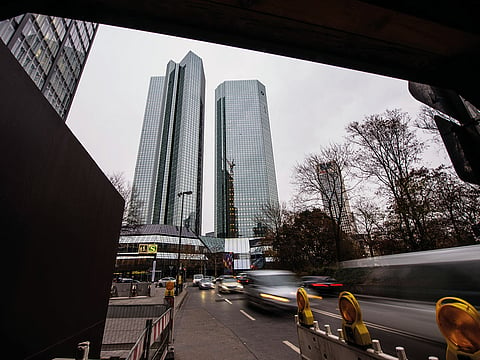Deutsche Bank and Commerzbank call off merger talks
"We have concluded that this transaction would not have created sufficient benefits"

FRANKFURT Germany's two biggest lenders Deutsche Bank and Commerzbank said Thursday they had called off talks on a possible merger, dashing Berlin's hopes of creating a financial "national champion".
"After thorough analysis, we have concluded that this transaction would not have created sufficient benefits" to justify the risks and costs of the complex deal, Deutsche Bank chief executive Christian Sewing and Commerzbank chief Martin Zielke said in a statement.
Earlier today
"Deutsche Bank boss Christian Sewing is the one recoiling the most from the step. [The merger] appears too complex to him," the news weekly's website reported.
Deutsche Bank and Commerzbank spokespeople declined to comment on the reports when contacted by AFP.
Any retreat from a possible merger would be a setback for Chancellor Angela Merkel's government and especially finance minister Olaf Scholz, who had hoped to chivvy reluctant executives in Frankfurt into creating a national banking giant.
The federal government was encouraging the start of talks long before the banks' official announcement in mid-March that they would sound one another out.
Berlin, which still holds a 15-percent stake in Commerzbank after a state rescue in 2009, wanted a strong, single national bank to support major German firms on the global stage.
It had also wanted to avoid allowing one of the two giant German banks to be swallowed up by a healthier foreign competitor.
But financial sector voices had warned that the lenders were weakened after years of limping recovery from the financial crisis and its fallout, and tackling far-reaching restructuring projects of their own.
Deutsche remains exposed to possible legal risks, including a Russian money laundering scandal, and both lenders are battling an environment of low interest rates and intense competition in their home market.
"The negative side effects of such a merger could be substantial, creating a bank that is too systemic to fail and too complex to manage," Isabel Schnabel of the government's Council of Economic Experts wrote in the Financial Times earlier this month.



